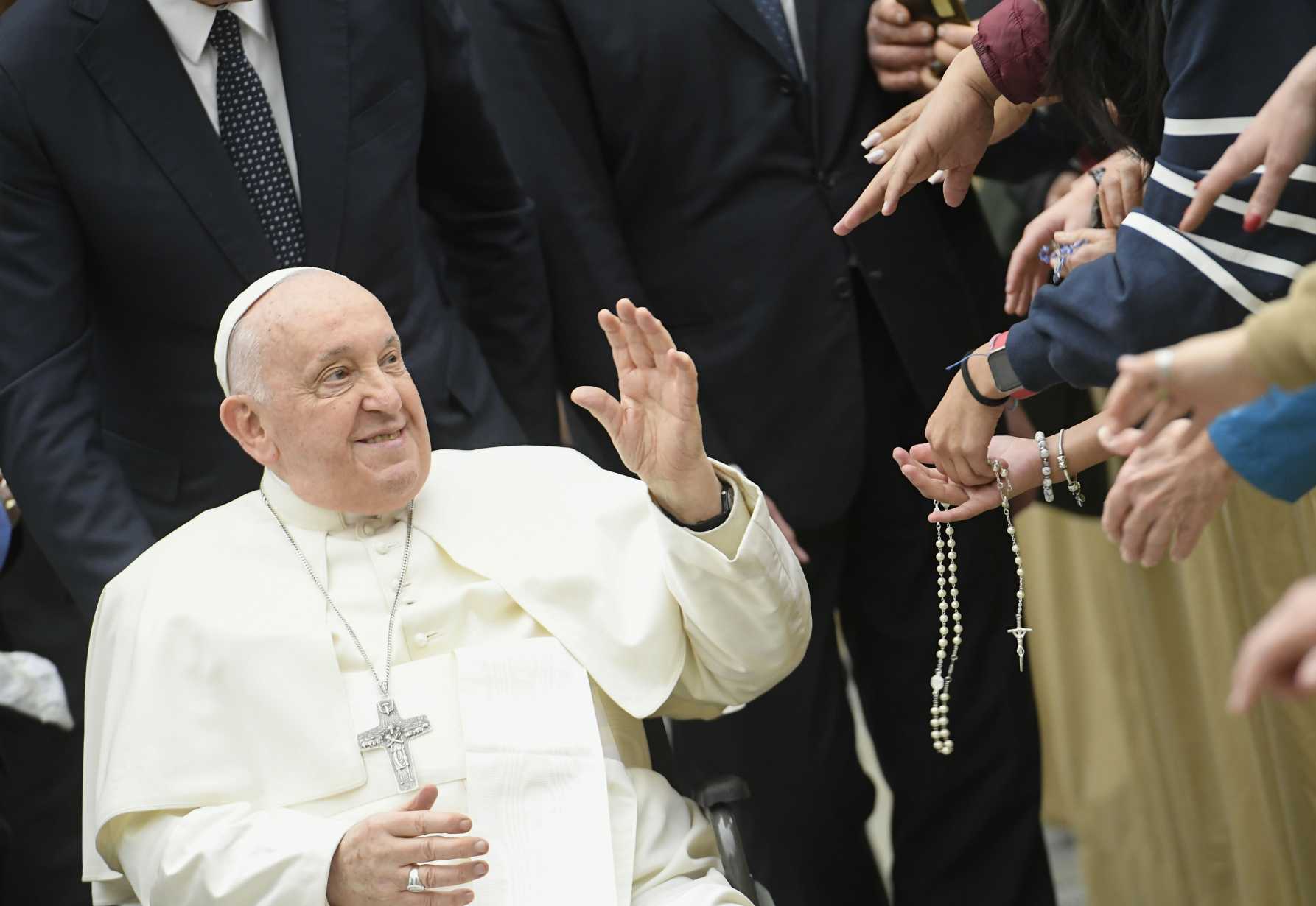Gluttony turns people into mere consumers, exploiters of planet, pope says
Continuing a new series of talks on virtues and vices, Pope Francis reflected on gluttony, saying this vice threatens earth's resources. Humanity was meant to be custodians of creation, not "predators," he said, calling on Catholics to be 'eucharistic,' capable of giving thanks and restrained in using resources.
 Carol Glatz
Carol Glatz

Pope Francis greets visitors at the end of his weekly general audience in the Paul VI Audience Hall at the Vatican Jan. 10, 2024. (CNS photo/Vatican Media)
VATICAN CITY (CNS) -- One of the most dangerous vices is gluttony, turning people who are meant to be custodians of creation into mere consumers and even exploiters and predators, Pope Francis said.
"The sin of those who succumb before a piece of cake, all things considered, does not cause great damage, but the voracity with which we have been plundering the goods of the planet for some centuries now is compromising the future of all," he said.
"We have grabbed everything, in order to become the masters of all things, while everything had been consigned to our custody, not to our exploitation," the pope said Jan. 10 at his weekly general audience in the Paul VI Audience Hall.
Continuing a new series of audience talks about vices and virtues, the pope reflected on the vice of gluttony, which the ancient church fathers referred to as a kind of "folly of the belly."
Jesus taught that what is wrong is not food in and of itself, but one's relationship with it, Pope Francis said. Jesus is "the Messiah whom we often see at the table," nurturing the importance of food and benevolently sharing a meal with others, including sinners, as part of his desire for "communion and closeness to everyone."
A poor relationship with food is associated with "many imbalances and many pathologies," the pope said. "One eats too much or too little. Often one eats in solitude," and eating disorders, such as anorexia, bulimia and obesity "are spreading."
"They are illnesses, often extremely painful, that are mostly linked to sufferings of the psyche and the soul," the pope said.
"The way we eat is the manifestation of something inner: a predisposition to balance or immoderation; the capacity to give thanks or the arrogant presumption of autonomy; the empathy of those who share food with the needy or the selfishness of those who hoard everything for themselves," he said.
"Tell me how you eat, and I will tell you what kind of soul you possess," he said; in other words, it reveals one's inner disposition, "our psychic habits and attitudes."
"We must eat to live, not live to eat," he said, encouraging people to be cautious with this vice "that latches onto one of our vital needs."
From a "social point of view," he said, "gluttony is perhaps the most dangerous vice, which is killing the planet."
"This is why the fury of the belly is a great sin: we have abjured the name of men, to assume another, 'consumers,'" he said.
"We were made in order to be 'eucharistic' men and women, capable of giving thanks, discreet in the use of the land, and instead the danger is that we turn into predators," he said.
"We are realizing that this form of 'gluttony' causes a great deal of harm to us and to the environment in which we live," Pope Francis said. "Let us ask the Lord to help us on the path of moderation, that all the forms of gluttony do not take over our lives."

Pope: Watch your relationship with food
Pope Francis dedicates his weekly general audience talk to the vice of gluttony.



